Background
Village Health Councils (VHCs) were notified by the Government of Meghalaya in February 2022 as the nodal community institution to “mobilize actions on health and nutrition issues and serve as a critical link between the state health systems and community members.” From every ten households, one representative is chosen, encompassing both male and female heads of households in a village. An elected executive committee, comprising a minimum of ten members, provides leadership. Half the seats of the executive committee are reserved for women. The local Accredited Social Health Activist (ASHA) and Anganwadi worker (AWW), Community Gender Health Activist (CGHAs), are also permanent members of the VHC including Teachers from local schools wherever available. VHCs meet at least once a month to discuss health and nutrition issues important and relevant to their community.
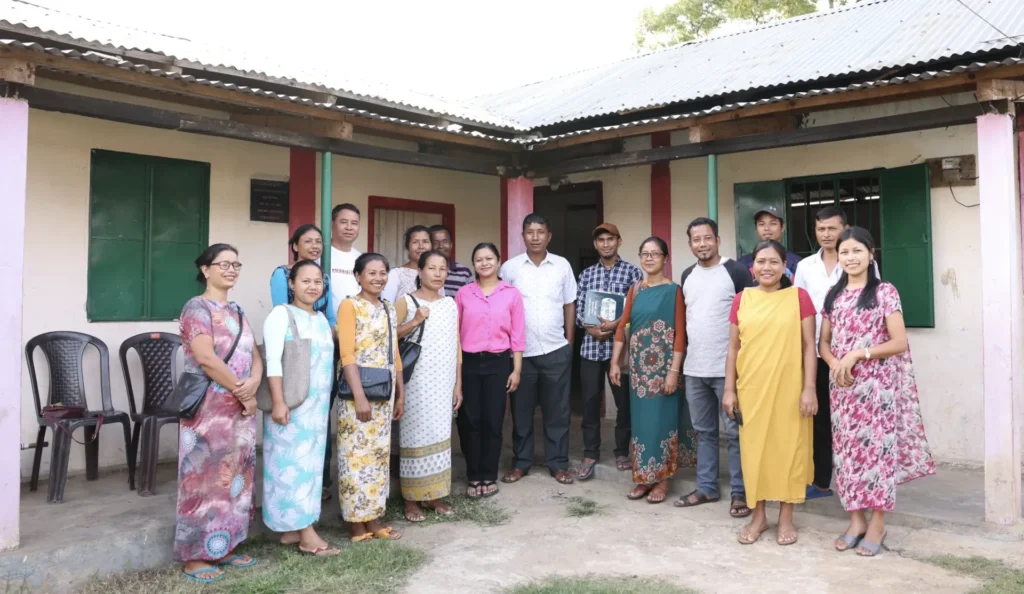
VHCs represent a novel approach to addressing health issues at the community level, focusing on positive health outcomes. They mobilize actions to register pregnant women for antenatal care, facilitate institutional deliveries, explain the danger signs of high-risk pregnancies, address the nutritional issues of pregnant women as well as children, encourage men to seek treatment for non-communicable diseases, give awareness on health-related govt schemes available etc. Through initiatives like the Pradhan Mantri-Ayushman Bharat Health Infrastructure Mission, VHCs are empowered to participate in the construction of health sub-centres, ensuring healthcare facilities reach even the most remote areas.
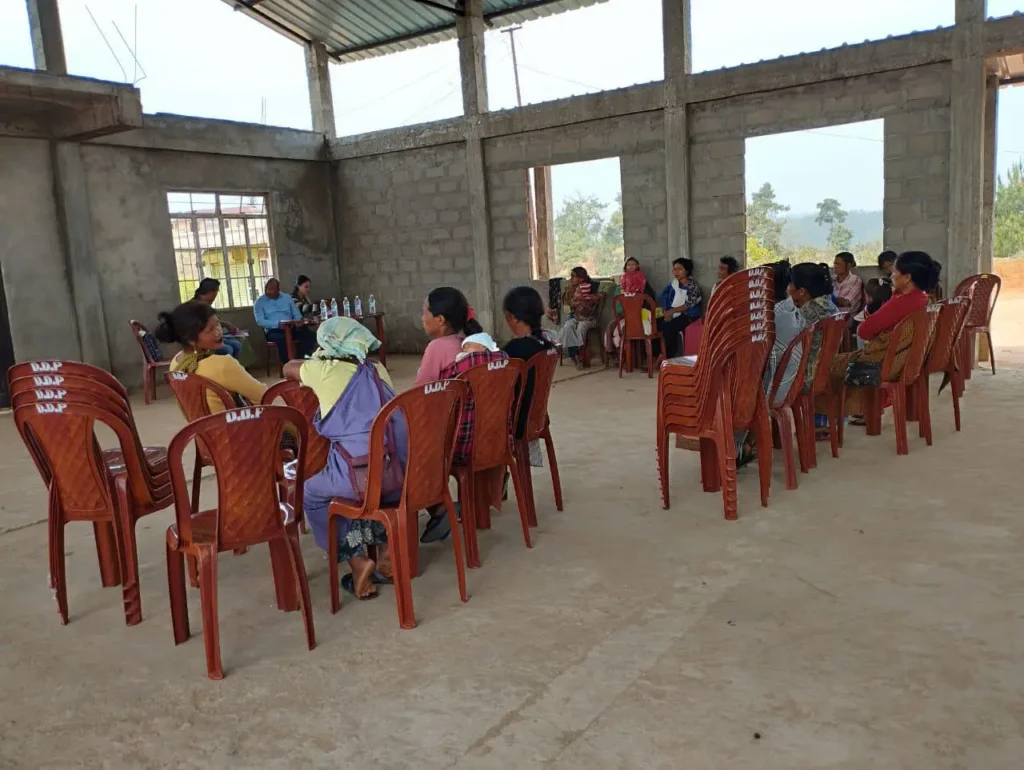
Problem Statement and Baseline Indicators
Challenges such as material costs and land levelling were notable, yet the community’s perseverance was evident. Traditional community-level health initiatives like the Village Health, Sanitation, and Nutrition Committees (VHSNCs) faced challenges such as irregular meetings, low attendance, and unclear roles. This hindered their effectiveness in addressing health and nutrition issues independently. Aligning with the Mahatma Gandhi National Rural Employment Guarantee Act scheme (MGNREGA), committee engagement was improved, highlighting the community’s commitment to addressing healthcare needs in remote as well as areas that lacked transportation access.
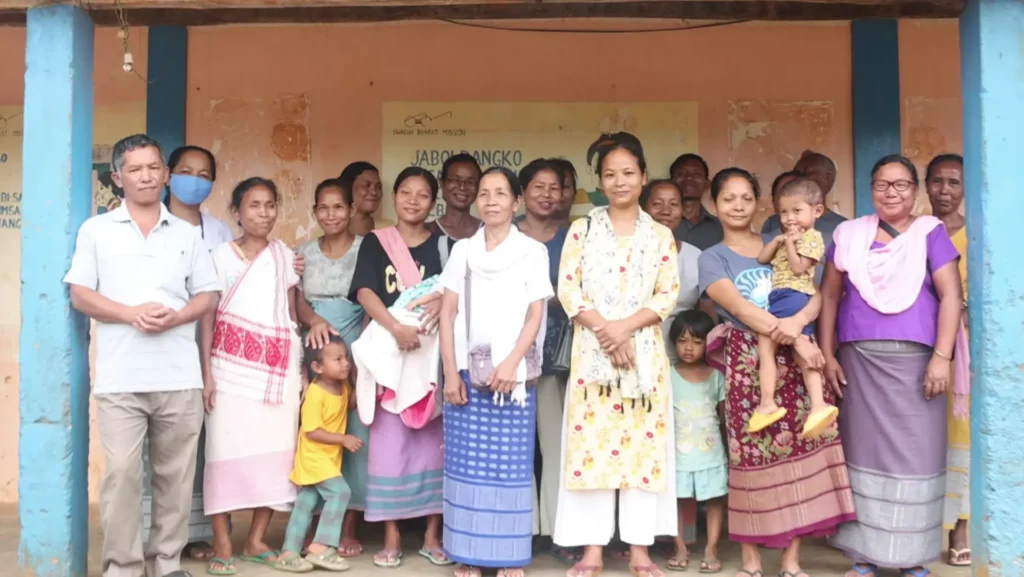
Best Practices
Village Health Councils (VHCs) in Meghalaya signify a grassroots community initiative aiming to bridge the healthcare gap. In a span of six months, the Village Health Council’s active involvement resulted in the construction of a sub-centre in July 2022 in Pyntei village, Laskein subdivision of West Jaintia Hills district, Meghalaya. The Pyntei Village Health Council (VHC) was formed, consisting of 18 members which aimed to improve the overall health and well-being of Pyntei’s population, which stood at approximately 659 residents at the time of construction. Despite facing challenges such as higher material costs and the need to level the land, the determined villagers persevered. Pyntei village was fortunate to have six certified skilled workers specializing in electrical and plumbing, along with a good number of experienced workers. The VHC-EC members, chosen for their efficiency, took charge of overseeing and monitoring the construction, ensuring the successful completion of the Sub Centre. As the Sub Centre took shape for those living in remote areas, battling poverty, and lacking transportation, this Sub Centre would provide various healthcare services to help everyone stay healthy.
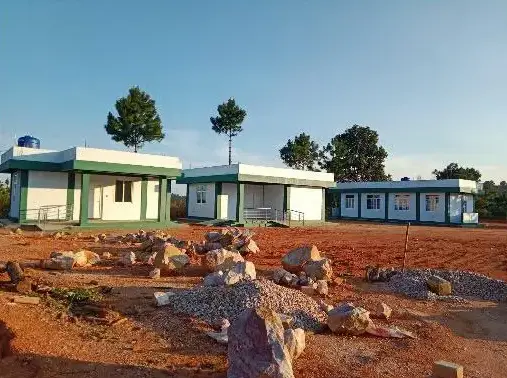
These services include taking care of mothers and children, providing advice on family planning, looking after the health of teenagers, checking on the health of students in schools, treating different illnesses, keeping an eye on diseases in the community, conducting outreach programs to visit people in their homes, working on preventing diseases, and ensuring access to clean water and sanitation facilities.

Beneficiaries and Impact
More than 98% of villages in Meghalaya have established Village Health Councils (VHCs), showcasing extensive community involvement. The state has witnessed the establishment of 6,753 VHCs, covering 6,815 villages, and successfully conducted 6,304 VHC training sessions throughout the region.
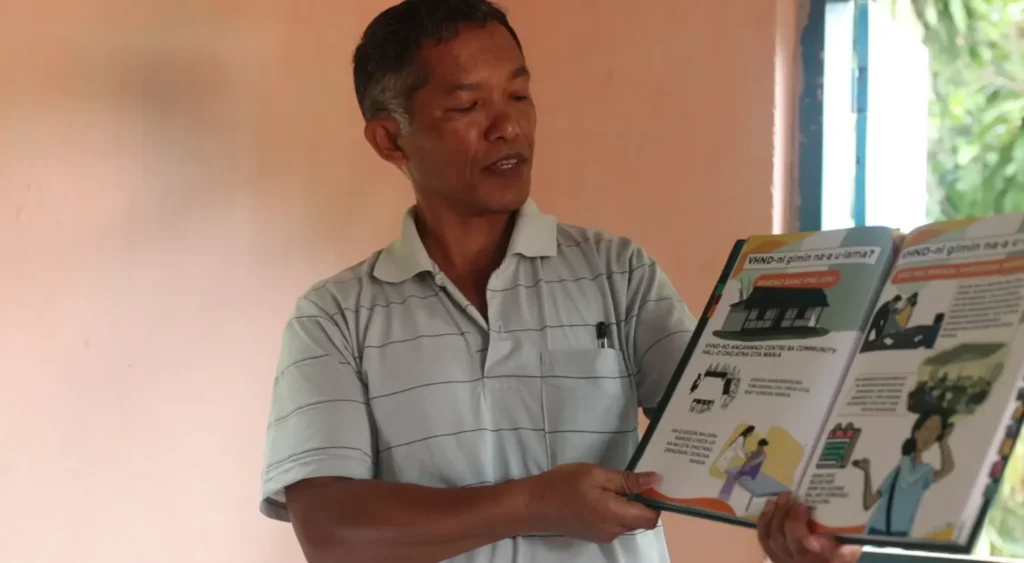
Efforts to strengthen VHCs include equipping them with tools like VHC Information, Education, and Communication (IEC) books and VHC Apps, facilitating better communication and decision-making. Through these efforts, Meghalaya is actively empowering communities to identify and address local health challenges, fostering a culture of innovation and problem-solving at the grassroots level.
VHCs have empowered communities to address health challenges independently, facilitating actions such as promoting antenatal care registration, arranging transportation for institutional deliveries, and mobilizing men to seek treatment for non-communicable diseases (NCDs). The construction of health sub-centres under the Pradhan Mantri-Ayushman Bharat Health Infrastructure Mission has brought healthcare facilities closer to communities, significantly improving access to rural healthcare and outcomes.
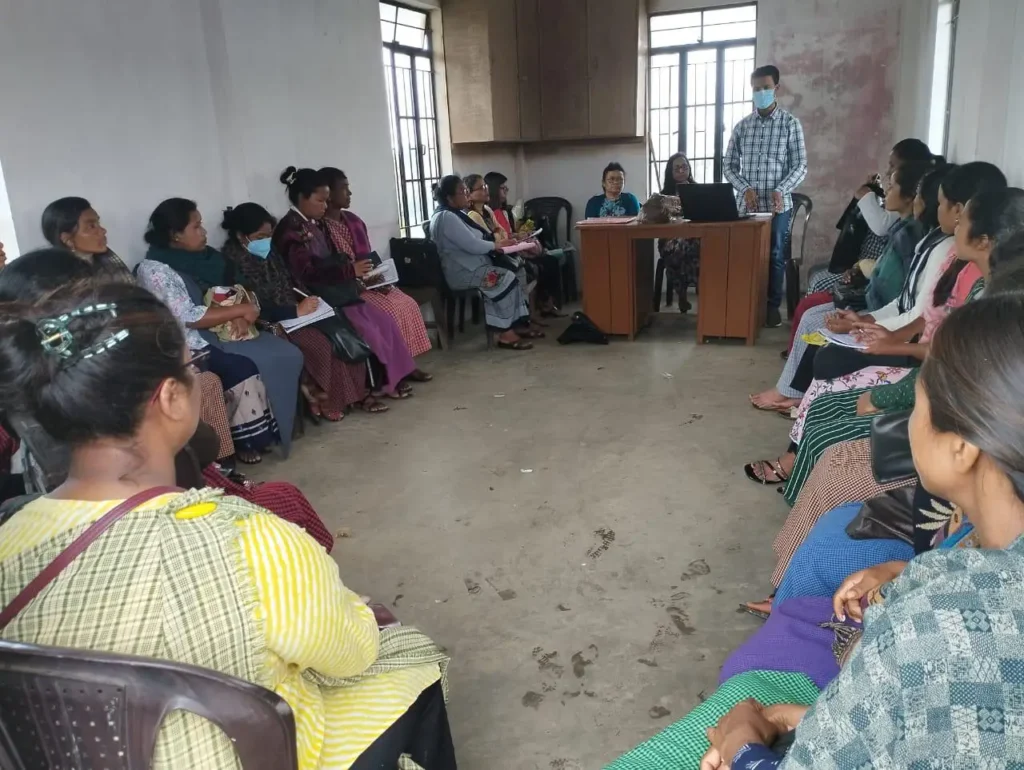
Key Learnings and Takeaways
While significant progress has been made in forming VHCs across villages, ongoing efforts are required to strengthen them, particularly to ensure the regularity of meetings. Initiatives such as training sessions for functionaries at district, block, and cluster levels, and the introduction of the VHC App, aim to enhance VHC effectiveness. Through these efforts, Meghalaya is actively empowering communities to identify and address local health challenges, fostering a culture of innovation and problem-solving at the grassroots level.
Integration of existing community institutions and traditional sources of authority within VHCs ensures legitimacy and enhances community mobilization. Efforts to strengthen VHCs, including regular meetings and capacity building, are essential for sustainable practices. The introduction of tools like VHC Information, Education, and Communication (IEC) books and VHC Apps facilitates information sharing and real-time insights, empowering communities to identify and address local health issues effectively. Through initiatives such as the VHCs, Meghalaya is actively empowering communities to innovate and solve local health challenges collaboratively.